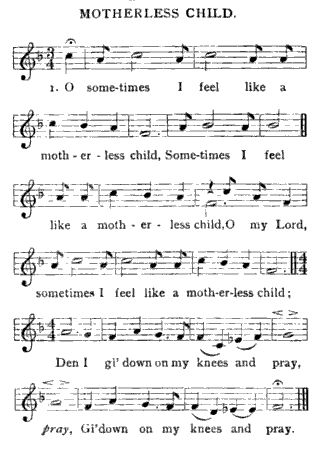
"Sometimes I Feel Like a Motherless Child", also "Motherless Child", is a traditional spiritual. It dates back to the era of slavery in the United States.
Contents
An early performance of the song was in the 1870s by the Fisk Jubilee Singers. [1] [2] Commonly heard during the Civil rights movement in the United States, [3] it has many variations and has been recorded widely.